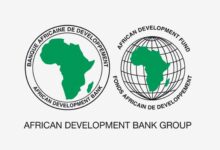Nigeria’s Export Proceeds repatriation rises by 40% – Emefiele

The Governor of the Central Bank of Nigeria (CBN), Mr Godwin Emefiele, has said that export proceeds repatriation into the country increased by 40 percent from three billion dollars in 2021 to 5.6 billion dollars at the end of 2022.
Emefiele said this at the Bi-annual RT200 Non-Oil Export Summit with the theme, “RT200: Challenges and Prospects To Success”, on Tuesday in Lagos.
He added that the momentum for 2023 was equally showing strong numbers and impressive prospects.
BRANDPOWER reports that the summit, third in its series, is aimed to share ground-breaking ideas on boosting non-oil export earnings in Nigeria.
It also ensures that proceeds therefrom are utilised most optimally for the benefit of Nigeria’s economy.
The CBN’s initiated RT200 FX Programme, aims to raise 200 billion dollars in foreign exchange earnings from non-oil proceeds over the next three to five years. It is anchored on a five-point agenda.
According to Emefiele, RT200 programme has made tremendous progress in export proceed repatriation since its establishment in February 2022.
“When we started between February and March because we were taking quarterly number, it was only $62 million; by the second quarter which was April to June, it has risen to about $600 million.
“By the third quarter, July to August or September, it has risen to over $900 million.
“Available data shows that repatriation due to the programme increased by 40 percent from $3.0 billion in 2021 to $5.6 billion at the end of 2022.
“The momentum for 2023 is equally showing strong numbers and impressive prospects.
“In the first quarter of 2023, a total of US$1.7 billion was repatriated to the economy while about $790 million was sold at the Investors and Exporters window year-to-date,” he said.
Emefiele said that the balance of the proceeds remained in the Export Domiciliary Accounts of exporters.
He noted that proceeds that were not sold at the Investors and Exporters window (I&E) could not and would not be eligible for the rebate.
He encouraged those holding their export proceeds in their domiciliary accounts to take advantage of the rebate by selling them at the I&E Window.
The CBN governor said; “we keep hearing cases of people trying as much as possible to sidestep the process.
“AIl I can do now is to appeal to those of us who want to export without documentation to please try as much as possible to desist from this practice.
“We will continue to engage customs, we will continue to engage Nigeria Ports Authority and we will continue to engage the shipping lines and agents to ensure that we need to nip in the bud the incidences of exporting without documentation.
“What this does is to reduce the export earning potentials of the country.”
Recalling a meeting of the bank with the shipping lines, Emefiele said, “about three years ago when we had a meeting at the CBN in Lagos with the shipping lines, I had said that the CBN will be beaming the searchlight on undocumented exports.
“And we had advised the shipping lines at that meeting that we will also be monitoring and if we find that they export without documentation we will fine them by placing their accounts on ‘Post No Debit’ order.
“We have so far not done anything like that, because we feel that our shipping lines will be responsible to do what is right.”
“However, if we do not see the kind of cooperation that we expect, I will have to insist that we do what we need to do.”
He expressed the bank’s continued commitment and assurance to strengthening and expanding foreign exchange supply into the market.
He urged exporters to take advantage of the summit to name and shame banks that were not responsive to them.
He said, “so that they can appeal to the banks to be more responsive because by being responsive to what you want, we are able to source export proceeds that helps our economy.
“We are able to source export proceeds that can help our economy, we’re able to generate export proceeds.
`That takes us away from depending on Central Bank of Nigeria as our source of foreign exchange to meet our imports. It is a dream and I pray that it comes through very soon.”
BRANDPOWER reports that Gov. Babajide Sanwo-Olu of Lagos State, commended CBN for initiating the programme, saying it was a critical step for diversifying the economy.
The governor said that it would also increase the capacity of the non oil sector to generate more foreign exchange earnings, boost economic growth and stabilise the economy generally.
Sanwo-Olu, was represented by the Commissioner for Economic Planning and Budget, Mr Samuel Egube.
The governor noted that the theme of the summit was apt and very instructive.
According to him, it has provided the opportunity for policymakers and other stakeholders in the non-oil sector to assess the effectiveness of the policy vis-a-vis the expected outcome.
He urged participants to evaluate all ideas and figure out ways to tackle some of the challenges including the `Japa’ syndrome.
“We must be courageous and think deeply in evaluating all ideas and figuring out how to combat even some of our challenges.
“These include topical issues, like the human resource exports, also known as the Japa phenomenon into sustainable advantages for national developments and a source of non-oil exports that could result in huge diaspora remittances.
“It is my expectation that since no policy is cast in stone, participants at this summit will use this opportunity to review the policies and programmes in line with current realities.
“And thereafter, recommend appropriate strategies and new ideas to overcome identified challenges that might be mitigating against the full realisation of the objectives of this programme,” Sanwo Olu said.












